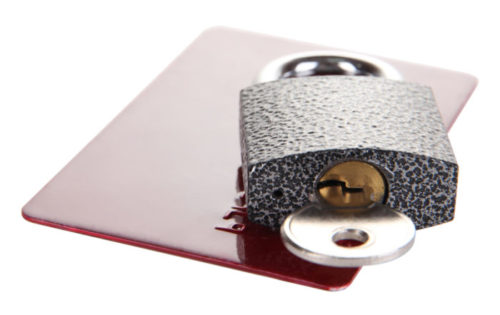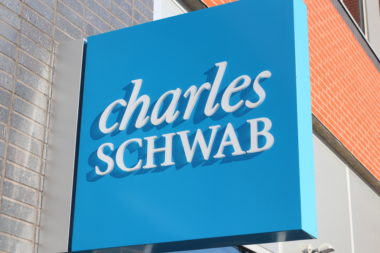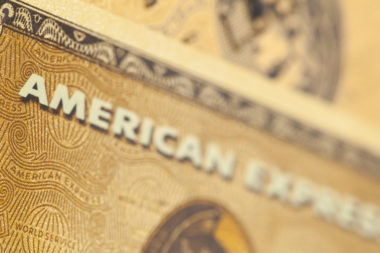Bank accounts are necessary for managing your personal finances. Yes, there are prepaid debit cards and check-cashing services for those who do not have a traditional checking or savings account. However, these services for “unbanked” people do not match the convenience and stability of regular checking and savings accounts.
Because of the usefulness of a checking account, you may feel frustrated if your application gets denied. You might even feel insecure or ashamed because most other people seem to have checking accounts, but you were not able to get one.
If your application for a checking account got denied once, it does not mean that it will get rejected every time you try to open an account. If your attempt to open a bank account fails, you can take specific steps to find what went wrong and then fix the problems so that you can gain approval the next time.
Here is a guide to help you decide what steps to take if you can’t open a bank account.
Table of Contents
Common Reasons You Might Not Be Able to Open a Bank Account
A bank could have a variety of reasons for not opening an account for you. Each bank has its own policies and procedures for determining eligibility for an account.
The easiest way to find out why your application got denied is to ask the bank. Often, banks refuse to open accounts for one of several reasons. Luckily, you can take steps to correct each of the typical problems that led to your request for an account getting denied.
Poor Checking Account History
When you apply for an account, the bank will usually ask ChexSystems for your bank account history. A bank may or may not run a credit check, but they will almost always get a ChexSystems report that details your past account usage.
This report may show specific problems that could raise red flags for a bank.
What type of problems would cause a bank to question your eligibility for an account?
Keep in mind that, in general, an occasional overdraft or fee issue is not going to ruin your account history completely. It takes a pattern of account mismanagement or repeated mistakes before your report raises red flags.
Here are some common problems for people who get a poor score on their ChexSystems report.
- Bounced checks: You bounce a check when you write a check but do not have the funds in your account to cover the amount.
- Multiple overdrafts: Overdrafts occur when you use your debit card, but do not have money in your account to cover the transaction. It usually takes numerous overdrafts to affect your ChexSystems score.
- Unpaid fees: Banks have different penalties and fees. If you do not pay these fees on multiple occasions, it could affect your ChexSystems report.
- Negative balances on closed accounts: Banks may close accounts if you do not pay fees or if you have excessive overdrafts. If they close an account in this way, a bank is saying that they would rather take a financial loss than continue to have you as a customer.
Though a single mistake may hurt you if you are applying for a premium bank account, such as an interest-bearing checking account, you generally need to exhibit a pattern of account mismanagement before it affects your ChexSystems report.
Applying for Too Many Accounts
You could also raise red flags if you apply for too many accounts. Some people apply for multiple accounts to take advantage of introductory bonus offers.
Banks may realize that you are only planning to keep the account for a short while until you get the introductory bonus or, more likely, the multiple account applications will trigger a fraud warning.
Your ChexSystems report includes the number of accounts that you have tried to open in the last 90 days.
Suspected Fraud
In addition to the fraud warning that you could have triggered by opening multiple accounts, a bank may see other types of activities that could be evidence of fraudulent behavior. Fraud could include trying to open an account using someone else’s identifying information or purposely writing checks that you know will bounce.
In some cases, the fraud might not be your fault. Perhaps someone stole your identity and used information such as your Social Security number to open an account that they used for fraudulent activity. A ChexSystems report can help you find accounts that you did not open yourself.
What to Do After You Are Denied a Bank Account
Getting rejected when you apply for a checking account can be frustrating. However, rather than letting the frustration get the better of you, you should formulate a plan of action. With the right steps, you can make the necessary corrections to succeed in your next application attempt.
Review Your ChexSystems Report
Consider reviewing your ChexSystems report. This report is available for free once per year. You may also get a copy if a bank turns you down because of the information in the report. You can request your ChexSystems report via fax or mail.
First, you will want to ensure that there are no errors in the report. In some cases, the bank may make a decision based on a mistake. In such instances, you can clear up the issue and immediately reapply for a bank account.
The other reason you want to see your ChexSystems report is to find where you need to make improvements. For example, if the report says that overdrafts are a problem, you can set up overdraft protection or create balance alerts when your checking account balance is low.
If the report shows that you have an account with a negative balance, you could approach the bank about paying off that balance.
Check Your Credit
Your credit report cannot directly impact your checking account options, but many banks request a credit report to measure your overall financial health.
You can request your credit report from the three credit bureaus (Equifax, TransUnion, and Experian) for free once per year over the phone, on the internet, or by mail.
This information is worth checking because a poor credit score could be a red flag for some banks.
Explore Your Banking Options
One option if you cannot qualify for a standard checking account is to get a so-called “second chance” checking account.
Banks design these accounts specifically for people who cannot qualify for standard checking accounts because of poor banking history. The goal of a second chance account is to allow the account holder the chance to make the necessary adjustments so that they can qualify for a standard checking account once again.
If you can manage your account without any issues for a specific amount of time, usually six months to one year, you can qualify for a standard checking account. Some banks may even automatically transfer you to a standard account once you get through the trial period.
Second chance bank accounts come with specific restrictions and requirements. For example, a bank may require you to make a security deposit or maintain a specific balance to keep your account active.
Such accounts may also come with maintenance fees. Furthermore, the bank may restrict debit card usage.
Alternatives to Bank Accounts
With the correct steps, you can eventually open conventional checking and savings accounts again. Until you repair your bank account history and take the other necessary steps, you can rely on alternatives to standard bank accounts.
- Reloadable prepaid debit cards offer some of the most common features of checking accounts. You can use them like you would a standard debit card from a bank. Some even allow you to set up a direct deposit. However, you could incur fees when depositing cash. Some of these cards also have monthly maintenance fees.
- Check-cashing services give you cash or a prepaid debit card when cashing a paycheck. The advantage of these services is that you get your money right away. The main drawback is that these services charge high fees to cash your check.
- Some mobile banking services, such as Chime and Green Dot, do not pull a ChexSystems report when you apply for an account. These banks may be options if you cannot get a standard checking account.
Image Source: https://depositphotos.com/





